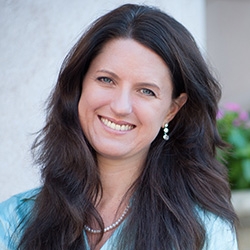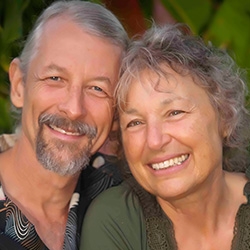

Search Results: self compassion
-
With this exercise you'll choose an experience you had with someone where your needs were not met. You'll work with the related feelings, judgements, values, and feeling the fullness of the need even though it was not met, plus any sadness that may arise.
-
-
Discover deeper self-acceptance, unlocking emotional healing and spiritual presence.
-
During this very moving session, you'll dive into Robert's exercises for supporting connection to your true self as opposed to your conditioned self.
-
Yvette Erasmus shares practices to help us develop a regulated nervous system. We all get hijacked and triggered at some point. When that happens we can travel a blame and shame road or we can greet ourselves with graciousness and self compassion.
-
Trainer Tip: Use conflict with others as a way to learn more about yourself.
-
Learn how clarifying the needs behind ‘shoulds’ can ease conflict, grief, and family challenges.
-
Miki Kashtan shows how translating judgments into needs transforms family conflict and connection.
-
Understand what drives children’s behavior and why their actions may feel annoying to parents.
-
Discover how self-empathy fosters healthy, supportive relationships with children and others.
-
Exploring how blame hides our inner voice and fuels pain through self-judgment and stories.
-
Ask the Trainer: My question is about wanting to empathize more with my husband. Sometimes we connect very deeply, other times he slips back into "jackal talk..."
-
Ingrid guides parents to navigate everyday parenting challenges using the NVC model, such as the behavior of a frustrated child, a messy room, transition times and a child who collapses when things don't work out as she had hoped.
-
Experience the remarkable healing power of self-empathy, guided by CNVC Certified Trainers, Mary Mackenzie and Raj Gill. In this audio course, the trainers lead participants through a demonstration, and then supplement the learning with discussion and answers to questions.
-
Explore Self-Empathy with a unique four-step process ending in gratitude.
-
Learn how your inner relationship forms the basis for Focusing and NVC.
-
Balance self-passion and compassion with NVC tools to stay empowered and honor your own needs.
-
Explore the similarities and differences between NVC and Inner Relationship Focusing.
-
Live from the beauty of needs through deep self-compassion and spacious inner transformation.
-
Create intimacy with transparency, empathy, and trust—Kelly blends humor, music, and exercises.

Quick Links
Subscription Preferences
Stay In Touch!
Looking for ways to keep up with NVC Academy news, get special offers, free resources, or words of inspiration? Here are five ways to stay engaged:



















